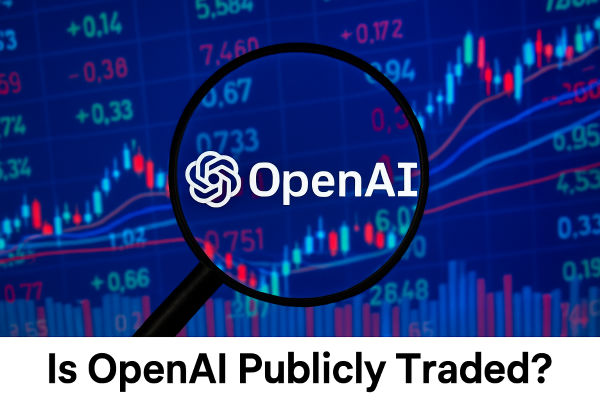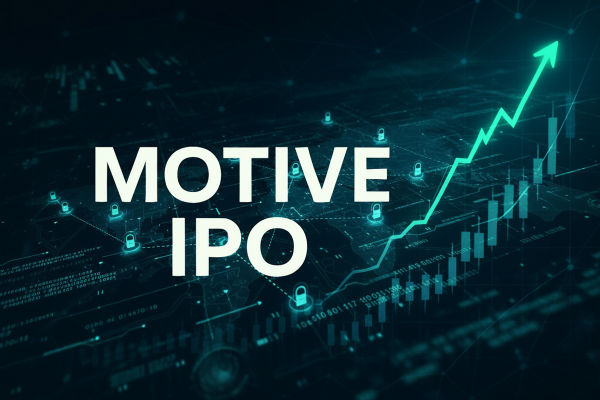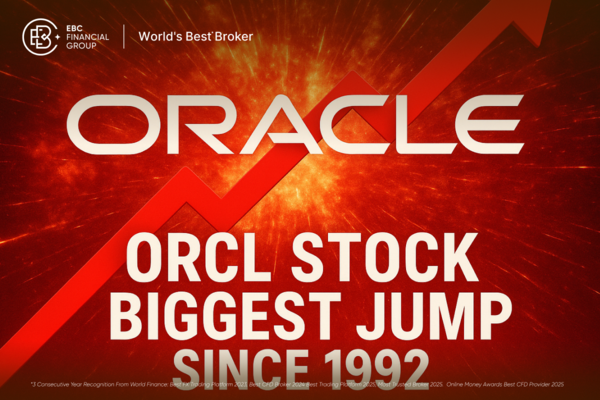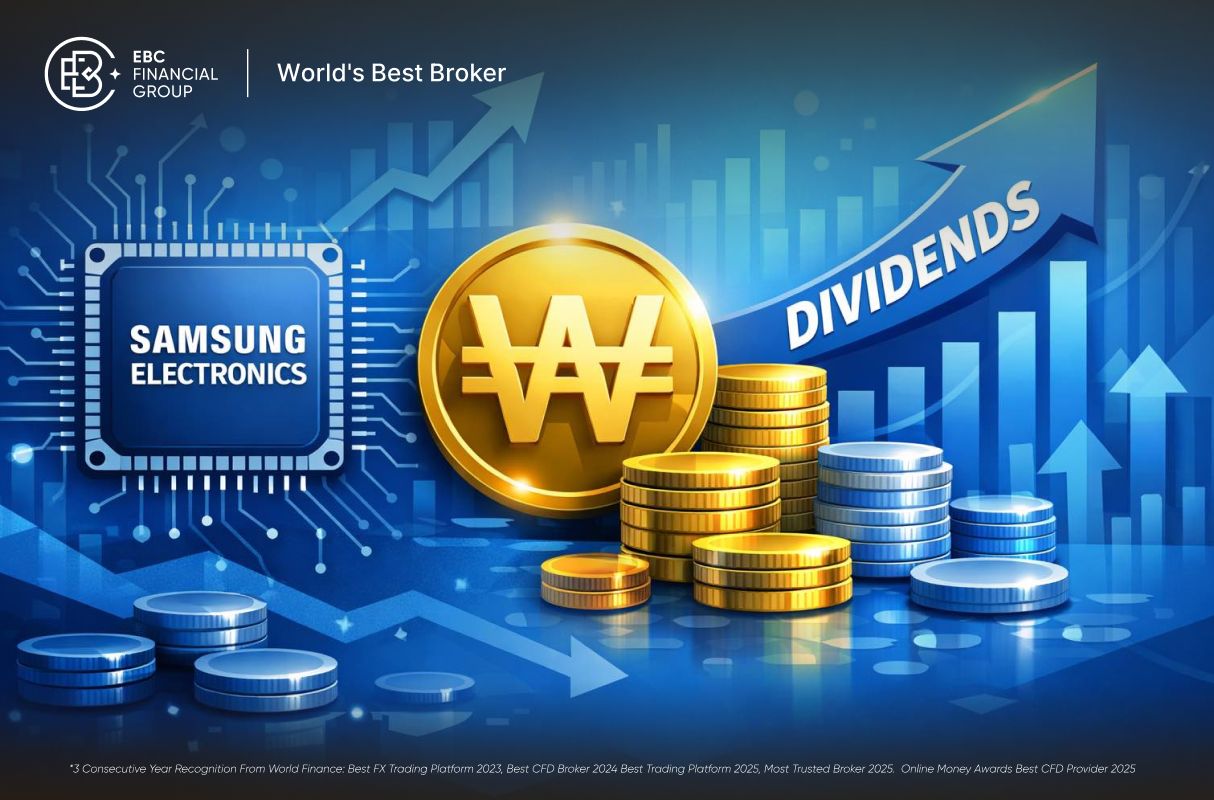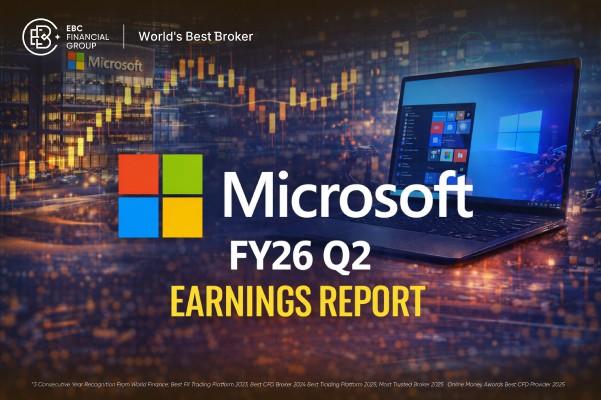OpenAI is one of the most closely watched names in artificial intelligence (AI), yet as of October 2025, it remains privately held.
The company recently completed a secondary share sale valuing it at roughly $500 billion, according to reports, underscoring both its immense growth and ongoing investor demand.
Because these were private-market transactions rather than a public IPO, there’s still no official stock price available to retail investors. However, this hasn’t stopped market speculation or curiosity about indirect ways to gain exposure.
This article explores whether you can buy OpenAI stock, what its private valuation means, and the most practical alternatives for investors seeking to participate in the AI boom.
Is OpenAI Publicly Traded Yet in 2025?
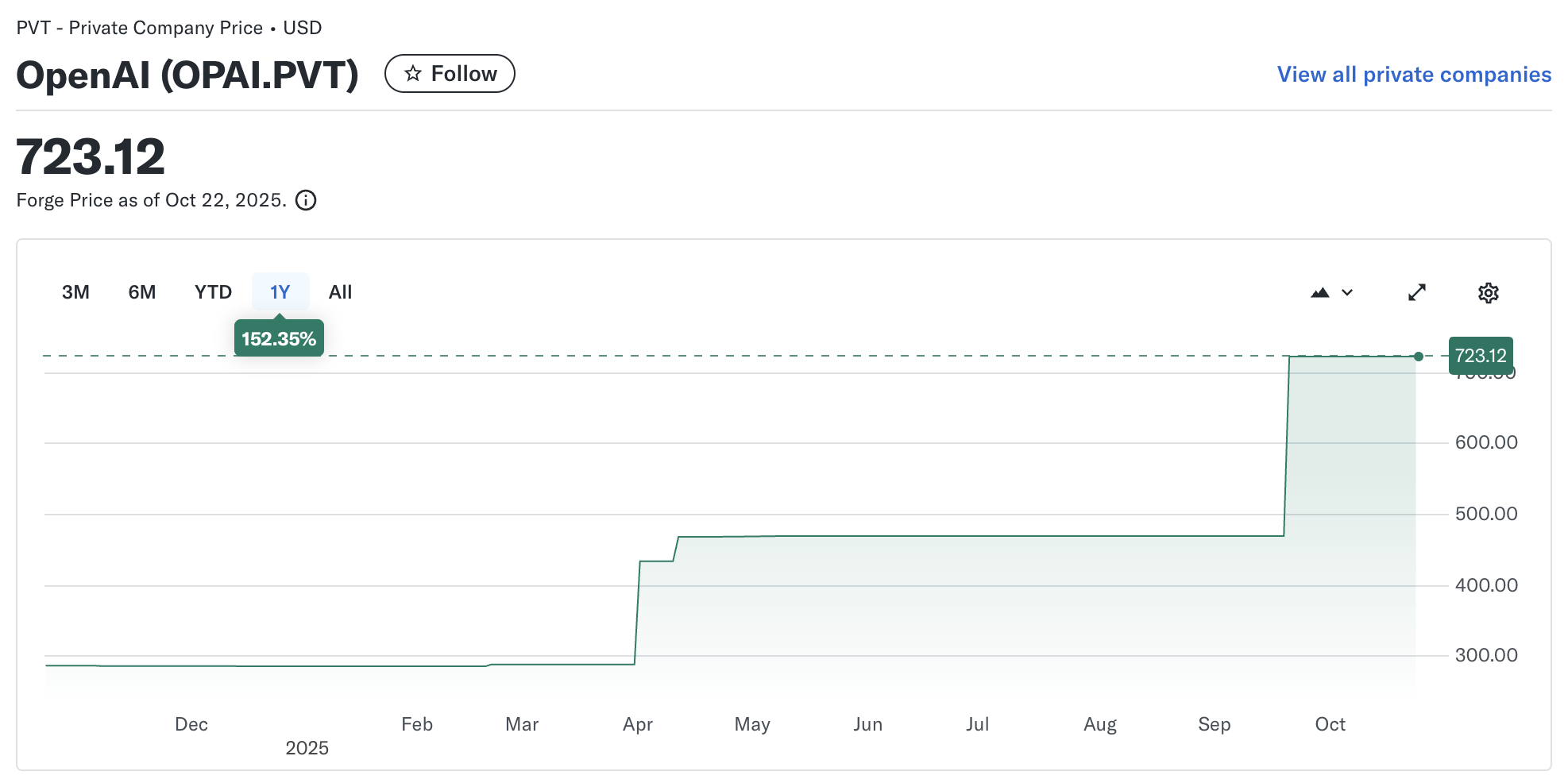
The immediate answer is no. OpenAI operates under a "capped-profit or public benefit" model, which combines mission focus with investor gains. This structure complicates standard IPO pathways.
In March 2025, OpenAI announced it was raising $40 billion, valuing itself at around $300 billion. Reports indicate that SoftBank is leading the round, contributing approximately 75% of the funding. [1]
However, as of September 2025, OpenAI still has not filed an official S-1 registration or confirmed a public listing date.
Due to these structural and regulatory considerations, OpenAI has remained private so far.
Major Developments That Could Shift the Narrative
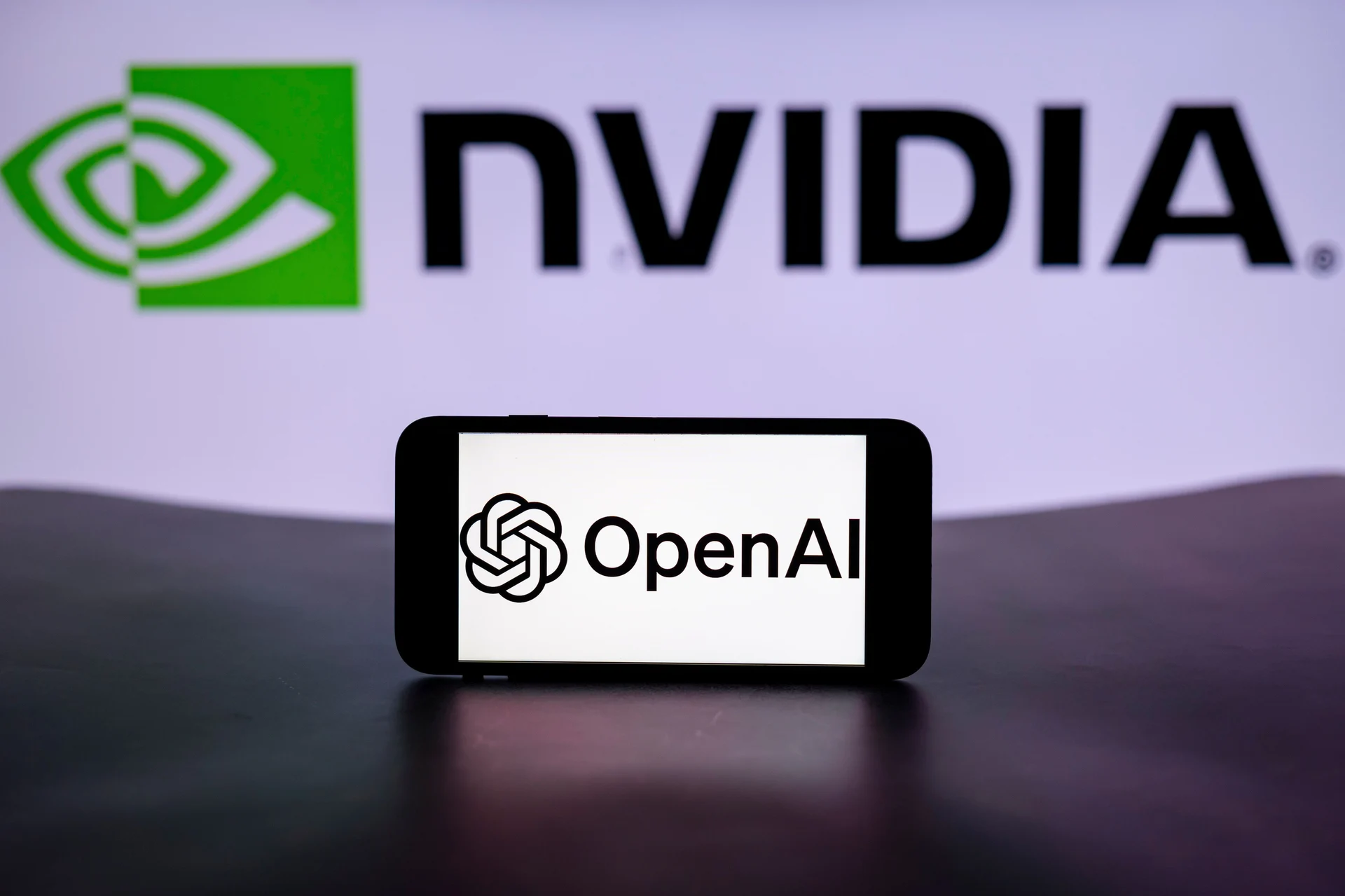
1. Nvidia to invest up to $100 billion in OpenAI
In September 2025, Nvidia and OpenAI announced a strategic partnership to deploy at least 10 gigawatts of NVIDIA systems to power next-gen AI infrastructure. Nvidia intends to invest up to $100 billion, with funding tied to deployment phases. [2]
The first gigawatt is expected to go live in H2 2026 using the Vera Rubin platform. The shares issued will be non-voting, and some analysts warn the structure resembles vendor-financing, raising questions if compute demand slows.
2. OpenAI’s “Stargate” data-centre build expands
OpenAI and partners Oracle and SoftBank announced five new U.S. sites under the Stargate project, ramping capacity to almost 7 gigawatts and investment to over $400 billion. Targets remain 10 gigawatts / $500 billion by the end of 2025.
The scale underscores AI infrastructure race stakes but also highlights massive capital exposure and execution risk.
3. Litigation and regulatory risks escalate
OpenAI now faces litigation related to the use of its models. For example, in August 2025, a lawsuit alleged that ChatGPT contributed to a teen's suicide, raising questions about responsibility, safety, and public policy.
While this does not directly impact IPO timing, regulatory scrutiny and public sentiment may affect its listing considerations.
4. CoreWeave Partnership
OpenAI has expanded its collaboration with CoreWeave through a new $6.5 billion contract, raising the total value of their partnership to $22.4 billion. This supports OpenAI's ambitious "Stargate" infrastructure project, targeting 10 gigawatts of computational capacity.
In short, the CoreWeave deal doesn’t directly trigger an IPO, but it strengthens the financial and operational narrative that OpenAI could present to public investors. It’s like OpenAI saying: “We’re ready to play in the big leagues; here’s the infrastructure to prove it.”
OpenAI IPO Outlook: Rumors, Timing, and Market Likelihood
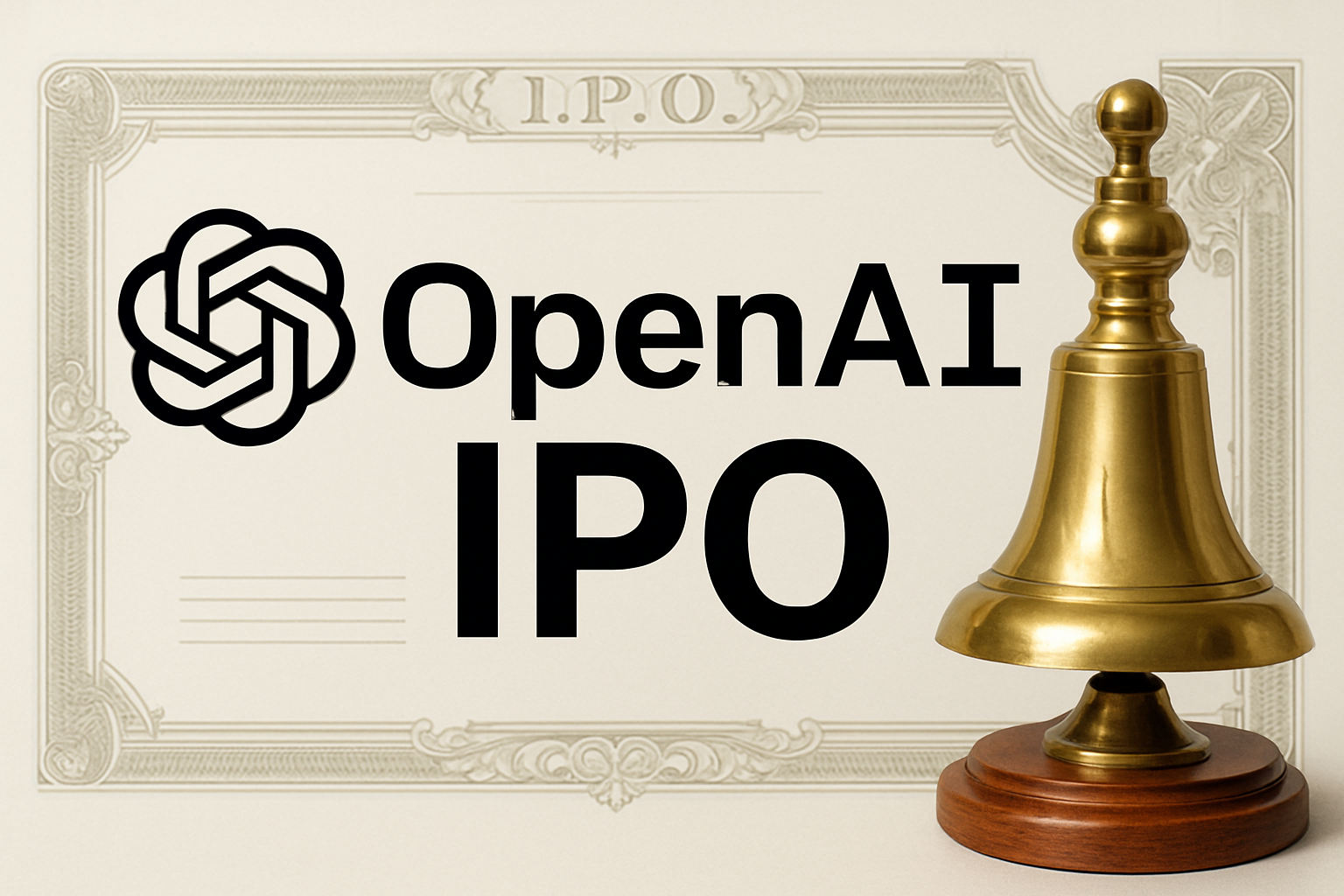
As of late 2025, OpenAI remains a private company, with no official IPO filing (S-1) submitted to the SEC.
However, reports from Reuters and other financial sources indicate that an eventual public listing is under discussion, potentially within the next one to three years.
If OpenAI does move toward an IPO, it would likely require a corporate restructuring to simplify its hybrid structure, where the capped-profit subsidiary is still overseen by a nonprofit board.
This unique governance model, while designed to ensure AI safety, complicates how traditional shareholders would participate and profit. Reuters reports suggest deliberations are ongoing. [3]
Valuation and Investor Expectations
Following its latest funding round linked to Nvidia’s $100 billion strategic partnership, OpenAI’s private valuation stands around $500 billion.
That puts it among the world’s most valuable private tech companies, rivaling late-stage valuations once seen for firms like SpaceX or ByteDance.
Still, analysts caution that this figure could face adjustment once public markets weigh in. High compute costs, energy intensity, and uncertain monetization of AI tools including ChatGPT, Sora, and Whisper, could moderate investor enthusiasm over time.
Key Risks That Could Delay an IPO
Even with investor interest at record highs, several factors could postpone or prevent OpenAI from going public:
Regulatory pressure on AI accountability, antitrust, and model transparency.
Market volatility, as investors show mixed appetite for large-cap tech IPOs after uneven listings in 2024–2025.
Reputational and legal risks, including lawsuits tied to AI misuse, misinformation, or content liability.
Governance friction, where the non-profit board’s oversight might conflict with public shareholder priorities.
How to Invest in OpenAI Stock? Alternatives
Below is a comparison of routes you can use to gain exposure:
| Route |
Pros |
Cons |
Liquidity / Access |
| Microsoft (MSFT) |
Public stock with major OpenAI partnership |
Not a pure OpenAI investment |
High: easy to buy and sell |
| AI & Tech ETFs |
Broad exposure to the AI sector |
No direct OpenAI shares |
High: widely available |
| Pre-IPO Marketplaces |
Possible early exposure before IPO |
Illiquid, limited to qualified investors |
Low: hard to access |
| Competitor or Partner Stocks |
Exposure to similar AI growth stories |
Different risks and business models |
Medium: depends on company |
Each route brings tradeoffs: you may gain AI exposure, but rarely get pure OpenAI upside.
Market Sentiment & Analyst Outlook
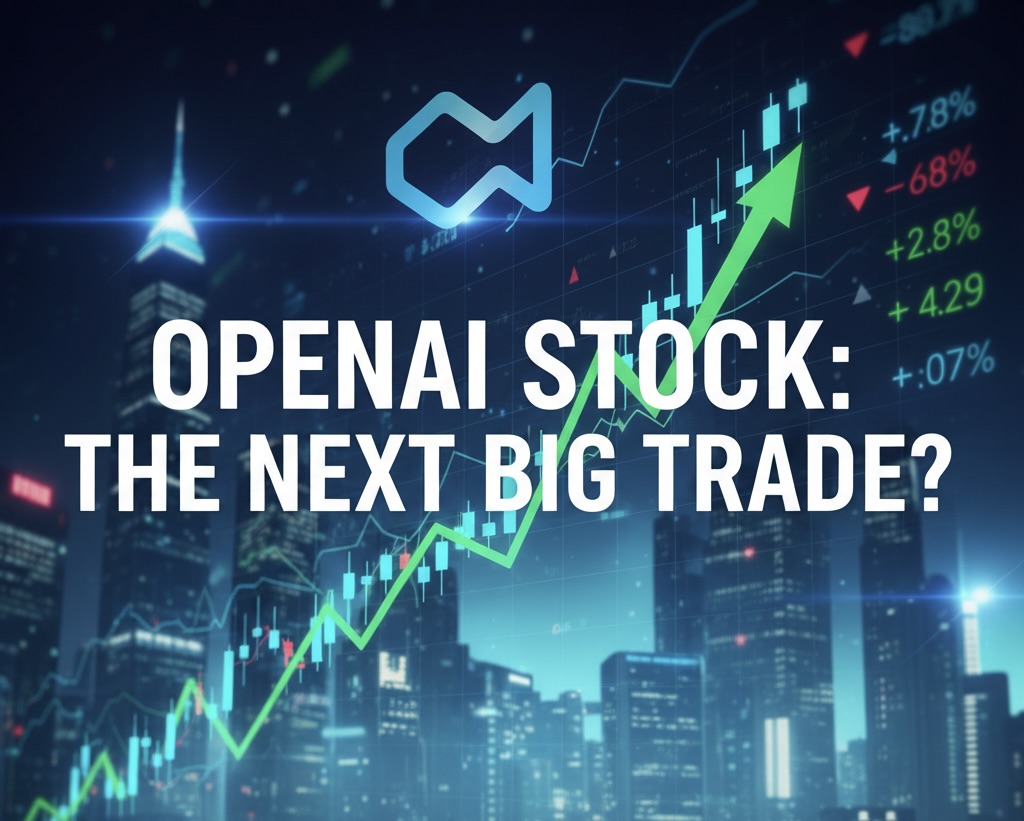
Investor sentiment around OpenAI is sharply divided. Analysts see the company’s $500 billion private valuation as either the foundation of a long-term AI powerhouse or the peak of speculative optimism before an eventual correction.
1. Bullish View:
Supporters argue that OpenAI’s technology and infrastructure justify its premium.
The company leads in large-scale model deployment and maintains deep integration with Microsoft and Nvidia. Demand for ChatGPT Enterprise, Sora, and Whisper continues to grow, reinforcing the idea that OpenAI has become a core layer in the global AI stack.
2. Bearish View:
Skeptics point to structural and financial risks. Compute costs remain extreme, energy usage is ballooning, and profit margins are under pressure. Heavy dependence on Microsoft’s cloud and Nvidia’s hardware limits OpenAI’s pricing power.
Ongoing legal and regulatory scrutiny adds another layer of uncertainty for any future IPO.
Outlook:
Most venture analysts expect that OpenAI will need at least another 12–24 months to prove sustainable profitability and operational independence before pursuing a public listing.
The company’s next phase execution on infrastructure, monetization, and governance will determine whether its valuation holds up under market scrutiny.
Frequently Asked Questions (FAQ)
1. Can I Buy OpenAI Stock Today?
No. OpenAI remains private. You can only gain exposure via indirect routes. Microsoft has the most direct exposure due to its partnership and investment in OpenAI's infrastructure.
2. Why Hasn't OpenAI Filed for Its IPO?
OpenAI has not filed for an IPO as its governance structure complicates a standard IPO. It also faces huge capital, regulatory, and scaling hurdles.
3. Is OpenAI Preparing for IPO Soon?
No, no confirmed IPO filing exists as of now. However, rumours point to 2026–2028 as the most realistic window.
Q4. What Does Nvidia's $100B Investment Mean for OpenAI's Future?
Nvidia’s $100B investment in OpenAI indicates strong dedication to computing and financial backing, while also raising concerns on how dependable OpenAI is on Nvidia and who holds the control.
Conclusion
In conclusion, OpenAI remains one of the most closely watched private companies in technology.
Massive funding rounds and large-scale infrastructure projects have fueled investor optimism, but as of October 2025, the company is still privately held.
With no IPO filing in sight and complex regulatory and governance barriers to overcome, its path to the public market remains uncertain.
If you're seeking exposure now, your best paths are via Microsoft exposure, AI sector ETFs, or high-risk pre-IPO marketplaces. But keep in mind that none replicate pure ownership of OpenAI.
Disclaimer: This material is for general information purposes only and is not intended as (and should not be considered to be) financial, investment or other advice on which reliance should be placed. No opinion given in the material constitutes a recommendation by EBC or the author that any particular investment, security, transaction or investment strategy is suitable for any specific person.
Sources
[1] https://www.reuters.com/technology/artificial-intelligence/openai-raise-40-billion-softbank-led-new-funding-2025-03-31/
[2] https://nvidianews.nvidia.com/news/openai-and-nvidia-announce-strategic-partnership-to-deploy-10gw-of-nvidia-systems
[3] https://fortune.com/2025/09/15/are-we-inching-closer-to-an-openai-ipo/
